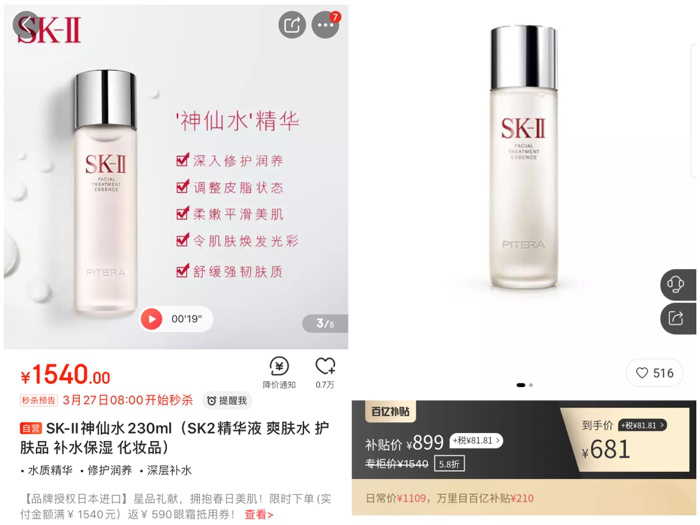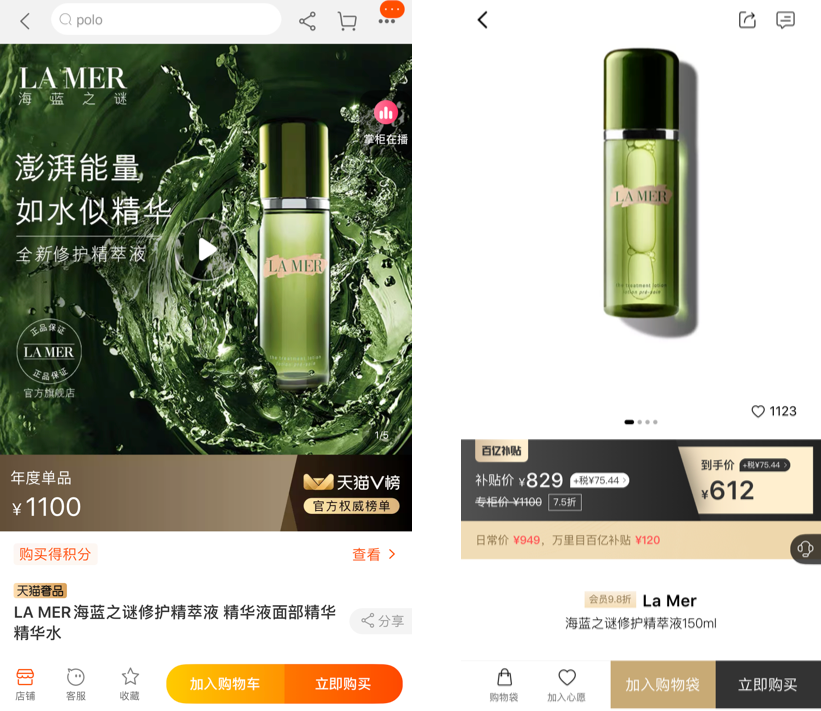Luxury goods are getting rid of the pure reliance on offline sales channels.
Luo Min, founder of Qudian Group, a company listed on the New York Stock Exchange, has always been known as a startup entrepreneur. When he had a new entrepreneurial direction, the news itself was not surprising at all.
The outside world is paying more attention to the battlefield he chose to settle in this time: luxury e-commerce. Recently, a cross-border luxury e-commerce platform called “Million Miles” is active in the public’s vision, and behind it is Fun Store.
The new player’s slogan is “not far away, global selection”-so that all good things are within sight. When Luo Min gave the platform the name “Million Miles”, he probably wanted to show his ambition based on China and facing the global market.
In fact, luxury goods are getting rid of the pure reliance on offline sales channels.
According to the general estimates in the industry, online sales of luxury goods will experience rapid growth in the next few years, and may reach 70 billion US dollars by 2025. In addition to the traditional players such as Farfetch and Alibaba, Miles announced its entry, which may bring a more diversified and localized approach to this recognized “too difficult” market.
01 Thousands of dollars are thrown away, and the big market is broken
Luo Min is a person who dares to think and do things. This is the consensus of observers in the industry. Sensitive and daring personality is also very obvious in this strong attack on cross-border luxury e-commerce.
According to the traditional marketing analysis framework, luxury is obviously an area with low entry barriers. On the one hand, the decision-making process of consumers is cautious and slow, and it is quite difficult to build a mutual trust relationship with consumers. challenge.
Thus, traditional e-commerce players generally adopt a cautious approach, focusing on slowly cultivating the consumer market over a longer period of time. But Wanli’s eyes are different. From the outset, he has thrown out the “ten billion yuan subsidy” strategy and tried to quickly penetrate the target market through strong subsidies and high fission.

Currently, black card members on Wanlimu platform enjoy 230ml of SK-II fairy water subsidy price of 681 yuan, which is equivalent to 44% compared with the counter price; 30ml of sea blue mystery essence cream subsidy price of 681 yuan, 45% ; 100ml Estee Lauder small brown bottle is only 622 yuan, 45% off … no rhetoric, no formal masterIn a word, Miles simply puts the irresistible price in front of all target consumers.

Price comparison between Tmall flagship store and Miles: SK-II fairy water 230ml

Price comparison between Tmall flagship store and Miles: Mystery essence of sea blue 150ml
Price is the easiest way to distinguish luxury goods from brands. But if similar products can be purchased at a lower price, consumers will naturally not refuse, after all, no one can’t bear the money.
In addition to subsidizing the price of luxury goods to the lowest level of the entire network, the ten billion subsidy strategy also covers the fission mechanism common to social e-commerce.
Wanlimu distinguishes its members and subsidizes them to varying degrees within a limited time. For example, current black card members can get 200 yuan tokens and enjoy 10% discount for life.
In addition, users invite new members to register and place orders, and can get a certain amount of Miles, similar to the “cash back” mechanism, to encourage users to fission and achieve word of mouth within the circle.
Whether it is a tens of billions of subsidies or a mechanism that introduces social fission and issues tokens to consumers, these are atypical ways that have not been seen in the field of luxury e-commerce before. Wanlimu obviously hopes to lower the threshold for luxury goods purchase through subsidies, so that more people become active users of luxury goods e-commerce.
Smashing a big market with tens of billions of subsidies, so is the planning behind Wanlimu.